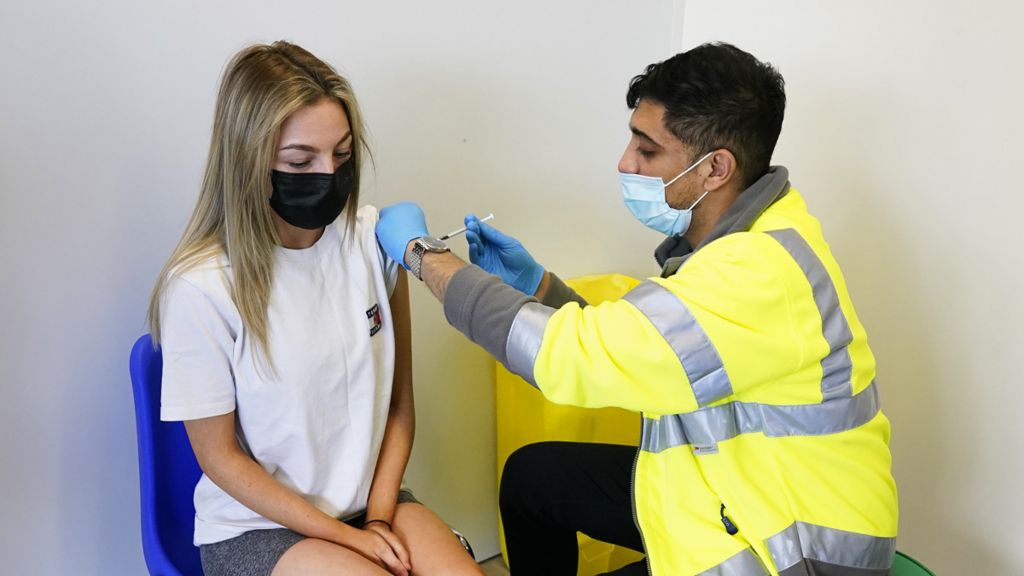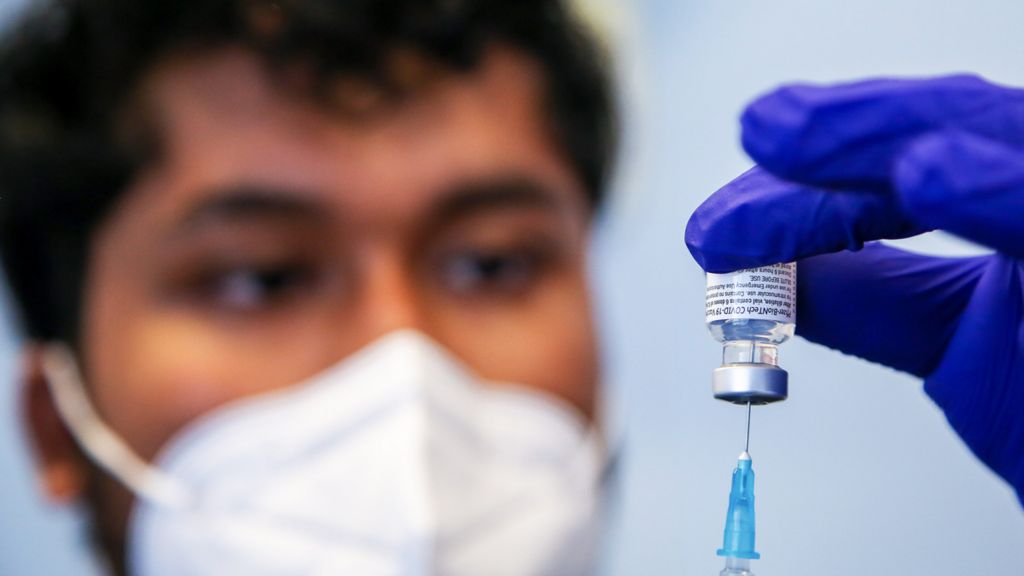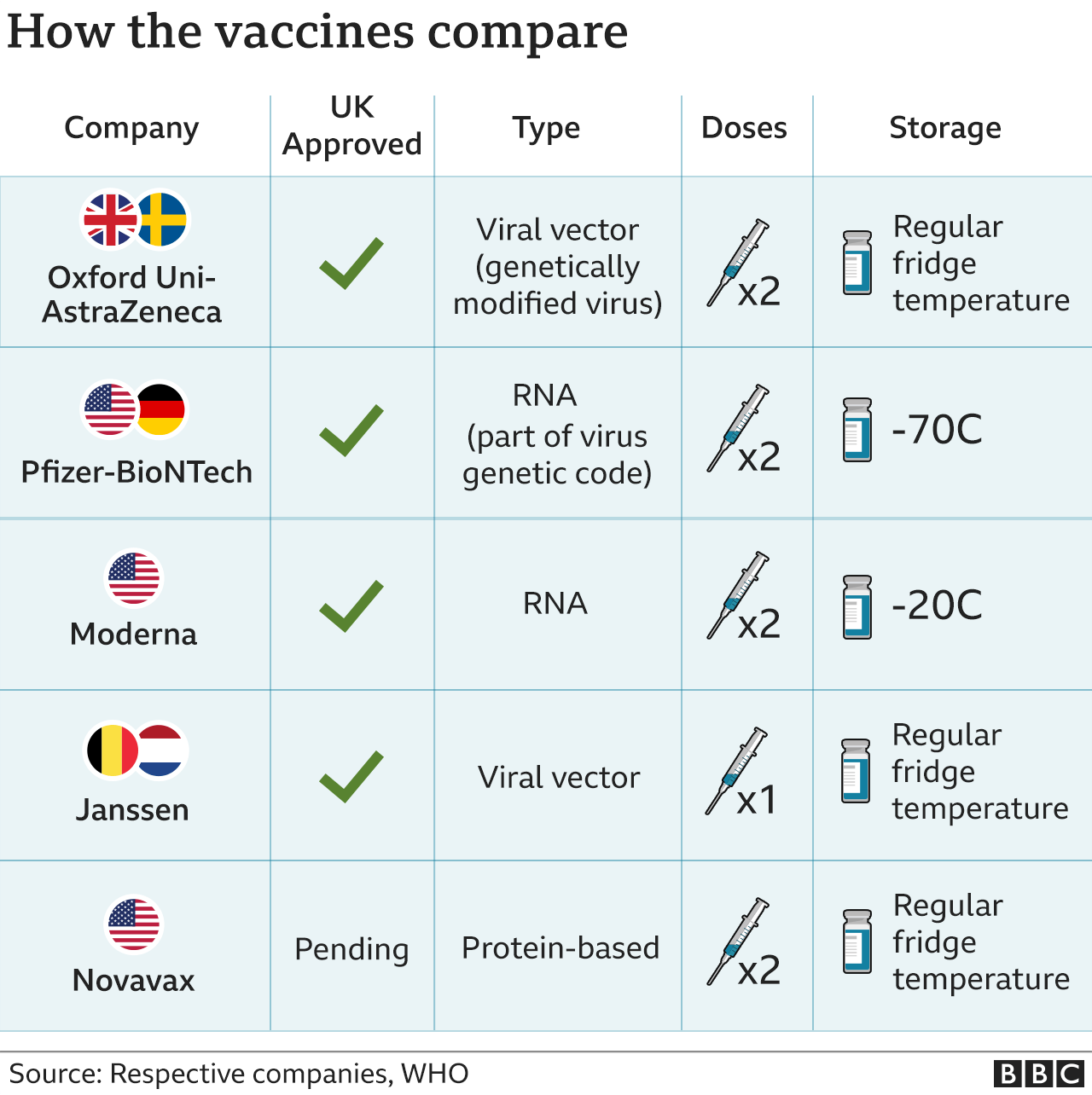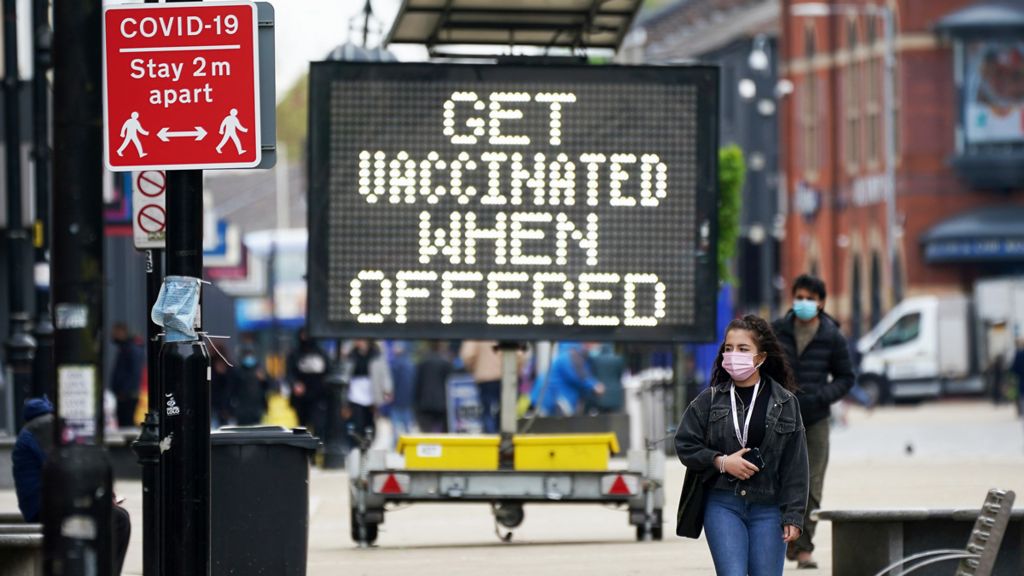The vaccine rollout is now reaching younger adults. What do they need to know about getting jabbed?

image copyrightPA Media
The vaccine rollout is now reaching younger adults throughout the UK, with the government aiming to vaccinate all adults by the end of July.
What’s more, the Pfizer jab has now been approved for children between 12 and 15 years old, although it’s not been decided whether most teenagers should be vaccinated.
- In England, people aged 25 to 29 can book online from Tuesday, or by calling 119
- In Scotland, people aged 30 and over are being invited for a vaccine
- In Wales everyone aged 18 and over will be invited for a vaccine by next week
- In Northern Ireland, people aged 18 and over can book online or call 0300 200 7813
The UK is using Covid vaccines made by:
- Pfizer-BioNTech
- Oxford-AstraZeneca (AZ)
- Moderna
A single-dose jab made by Janssen has also been approved.
You can’t choose what vaccine you get, but you will be allocated one based partly on your age.
If you’re under 40 or pregnant you will get Pfizer or Moderna.
But, if you’ve already had one AZ jab with no after-effects you should have a second dose.
Most are mild, completely normal and disappear after a few days.
They happen because the body’s defences are reacting to the vaccine, and include:
- a sore arm
- tiredness
- fever
- headache
- feeling sick
People aged under 55 are more likely to get side-effects from Pfizer and Moderna.
With AstraZeneca, side effects are more common after the first dose than the second.
Under-40s are being offered alternatives to AstraZeneca because of a possible link between the vaccine and extremely rare blood clots in a tiny number of people.
It’s not clear if the vaccine is the cause, but the clots appear to happen slightly more often in younger adults.
For everyone else, the benefits of AZ and the other vaccines far outweigh risks, the UK regulator says.
Remember, 1,900 people in every million have died from Covid in the UK, and blood clots are a common symptom of the disease.

image copyrightGetty Images
No. But everyone is being urged to get two doses to protect themselves, their family, friends and wider society.
The vaccines:
- have saved more than 13,000 UK lives, according to Public Health England
- help reduce person to person virus spread (or transmission)
- help protect against new variants
Without a jab, you may not be able to travel abroad or do certain jobs.

A very small number of people have experienced a severe allergic reaction, anaphylaxis, after the Pfizer and Moderna vaccines.
This can happen with some vaccines. You should discuss any allergies with your healthcare professional.
Covid-19 can make some women seriously unwell in late pregnancy and this can increase the risk of babies being born early.
The advice is to have a Pfizer or Moderna vaccine, because there is more evidence those jabs are safe in pregnant women.
If you prefer, you can delay vaccination until after your 12-week scan.
If you’re breastfeeding, you can still have a vaccine, government guidance says.
There is no evidence at all the vaccines cause fertility problems in men or women.
Claims to the contrary on social media are false.
In fact, getting coronavirus itself has the potential to affect fertility.

image copyrightGetty Images
Some women say they’ve experienced unusually heavy periods after being jabbed but it’s not known if the vaccine was the cause.
If it was, experts say there’s nothing to worry about.
A recent study, not yet published, suggests vaccination can help improve long Covid symptoms.
The vaccine could press the body’s reset button and help it recover, researchers say.
You don’t need to avoid alcohol but it’s best not to overdo it for a few days if you have vaccine side-effects.
When you are jabbed, say you don’t like needles. Then look away.
Many people say the injection is painless and hardly notice anything.
The Pfizer jab has now been approved in the UK for 12-15-year-olds, although it’s not yet been decided whether to widen the vaccination programme to include them.
The vaccine is safe and effective in this age group and the benefits outweigh any risks, the UK regulator says.
Older teens, rather than younger ones, are more likely to be infected and pass on the virus, although they’re very unlikely to fall ill.
The argument for vaccinating them would be to keep cases low, keep schools open and protect adults and the vulnerable.
But some say this is unethical with so many at-risk adults still unvaccinated around the world.
The BBC is not responsible for the content of external sites.